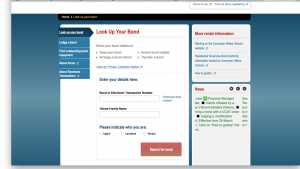These are changes in the State of Victoria.
The start date of the Residential Tenancies Amendment Act 2018 was delayed due to coronavirus (COVID-19), with the amendments to be introduced by 29 March 2021, rather than the original 1 July 2020.
While some laws have been already implemented, it is expected that all reforms will be in place by 29th March.
It still remains an interesting debate around pets. New laws came into effect on 2 March 2020. Tenants must now request their landlords’ consent to bring a new pet into the property. Landlords must not unreasonably refuse. If your landlord wants to refuse, they must apply to VCAT (Victorian Civil and Administrative Tribunal). Unfortunately, though, VCAT is inundated with requests for these orders. The new legislation indicates that if the tenant does not receive a refusal order within 14 days from VCAT, then they are allowed to keep the animal. This is making for some very unhappy landlords. We will keep watching this and update you.
These are the important changes you should know. For a full brief on all the new legislation, please visit Consumer Affairs.
Fixed price advertisements and offers, and ban on inviting rental bids
Rental providers (landlords) and estate agents can only advertise or offer rental properties at a fixed price. They are banned from inviting rental bids or soliciting offers of rent higher than the advertised price.
Pre-contractual disclosure
Before entering into a rental agreement, the rental provider must disclose to the renter whether the property is on the market for sale or is being repossessed, or if they are not the owner of the property, and information about any embedded energy network.
Additional bond amounts for long-term rental agreement
Rental providers can request an additional bond in long-term rental agreements of more than five years if the renter has lived at the rental property continuously for at least five years, and the rental provider has given at least 120 days’ notice.
Where and how rent is to be paid
Any method for paying rent can be specified under a rental agreement, but the rental provider must offer at least one reasonably available fee-free method of payment. Rental providers must also disclose any costs that may be incurred by the nominated method prior to the renter entering the agreement. Rental providers must also permit rent payments via Centrepay.
Unsigned rental agreements enforceable
If a renter has signed the rental agreement but the rental provider has not and the rental provider (or their agent) has accepted rent or allowed part performance of the agreement by the renter, then the agreement is enforceable.
Changes to rules around rent increases
For fixed-term rental agreements, rent increases can only occur if the rental agreement specifies the amount or method of the rent increase.
For rent increases that occur during a fixed-term rental agreement, the amount or calculation method for the increase must be set out in the agreement and this amount or calculation method must be used.
Excessive utility bills
Where a renter has received an excessive utility bill attributable to a hidden fault (such as a leaking water pipe), the rental provider must pay for the costs that exceed the renter’s ordinary usage amounts.
Notice to vacate for endangering safety
Rental providers can issue a notice to vacate if the renter or their visitor endangers the safety of neighbours, the rental provider or their agent, or a contractor or employee of either the rental provider or their agent.
New options for renters claiming their bond
Renters can apply to the Residential Tenancies Bond Authority (RTBA), without the rental provider’s permission, to have all or part of their bond released.
Professional cleaning requirements
A term in a rental agreement can only require professional cleaning if it is needed to return the property to the condition it was in at the start of the rental agreement, taking into account fair wear and tear.
Related article: Misleading Advertising in Real Estate
Repairs, modifications and property conditions
Rental property must be kept in good repair and reasonably fit for occupation
Rental providers (landlords) must ensure the rental property is provided and maintained in good repair and is in a reasonably fit and suitable condition for occupation. This applies regardless of the amount of rent paid or the property’s age and character.
Non-compliance with minimum standards
Rental providers must ensure that the property complies with minimum standards before a renter moves in. If a property does not comply with the minimum standards, the renter can terminate the rental agreement before they move in, or they can request an urgent repair.
Expanded definition for urgent repairs
Urgent repairs now include repairs or replacements relating to air conditioning, safety devices and any fault or damage which makes the property unsafe or insecure, including pest infestations, or mould or damp caused by or related to the building structure.
Rental provider must pay renter back for cost of urgent repairs within 7 days
Rental providers must pay back renters for the cost of urgent repairs (or replacement if the fault cannot be repaired) within seven days of the renter giving written notice of the reasonable cost of the repairs.
New rules for renters making modifications to rented property
Renters can make prescribed modifications without the rental provider’s consent. There are other modifications which a rental provider cannot unreasonably refuse consent to renters making. What qualifies as a prescribed modification will be decided by April 2020 following a public consultation in November 2019 through Engage Victoria.
This information is brought to you by INSPECT4U and Personnel Relocations.
Inspect4U is Personnel Relocation’s newest offer, specially formulated to relieve busy professionals of the demanding process of home finding. Instead, we do most of the work on their behalf. All you need to do is send us your shortlisted properties which match with your preference and liking. Our consultant takes your inputs and carries out inspections for you.
We also ensure your applications meet the high standard required for prompt approval. For our international relocation clients, we have a 96.2% success rate in getting approvals on a property within 2 weeks of their arrival. So we can help boost your rental applications.






